interview by Michael McCarthy
When I lived in Glendale, a suburb of Los Angeles, a decade ago, I went through a long period of being anorexic. During this time, I read every eating disorder related book I could find. I suppose I read some of them because they were triggering and encouraged me to restrict my calories in that way, but there were also those books that simply made me feel like I wasn’t alone in my suffering. Two of those latter books were novels by Francesca Lia Block, The Hanged Man and Violet & Claire. I loved them not only because I could relate to the characters but because they were so beautifully written, like well thought out poetry where every word counts. After reading those, I read everything I could find by Francesca. Lucky for me, the Glendale Barnes & Noble had a rather large section of her books, which kept me busy for months. Then there were the author events. The first one I went to was at Vroman’s in Pasadena. I remember sitting there and listening to her talk about her book Wasteland and wishing that I was still writing for magazines so I could interview her. I felt the same way at the second event, which was for Necklace of Kisses at Skylight Books in the Los Feliz area of Los Angeles. Of course, I asked a question or two at both of these signings, but certainly not nearly as many as I wanted to ask. Well, as you probably know, I recently decided to make interviews the focus of Love is Pop and that I wanted to interview some non-musical people, making it a bit more of a general pop culture site. So, at long last, I was able to interview Francesca this week. I hope you will find it as informative as I did. If you’re a writer, you’ll very well come away from it feeling inspired.
MM: First of all, to start at the beginning, were the Weetzie Bat books the first books you’d ever written or had you written others that just didn’t find a publisher?
FLB: Well, I wrote Weetzie Bat in college at the same time I was writing The Hanged Man, which was published later. And I was writing the short story that would later become Echo. And then I wrote the subsequent Weetzie books kind of later along with the other books.
MM: Was Weetzie Bat written as an assignment for school or just to explore your craft?
FLB: It was not written as an assignment. I was very homesick for Los Angeles and I felt nostalgic and really missed my family and friends in the city. So, I wrote that as sort of entertainment for myself when I was walking back from my classes at Berkeley. Then I was writing what I thought was maybe my more serious fiction, which turned into The Hanged Man. It was more for myself, really. And, also, it wasn’t written as a young adult book. I wasn’t intending that. I was really thinking about it as a sort of funny little book for people in their twenties, which in some ways it has now become in addition to being known as a YA book.
MM: I was wondering if it ever gets frustrating when people talk about them because that was the first thing you did. Do you feel like, why don’t we talk about my more recent books more often?
FLB: I’m so glad you asked instead of me having to suggest it. Yes, it is frustrating. I was about twenty four when I wrote it. So, I have a lot of books since then that I feel very strongly about that I want people to know about and read and discuss and they haven’t been nearly as much. So, I am grateful for those books, but, for instance, The Elementals is an adult book I published a few years ago that I think is one of my strongest books. Because I walk into a room and people say, “Weetzie Bat.” [Laughs] And I want them to know that I’m doing a lot of other things.
MM: Speaking of The Elementals, it had a really harrowing ending. Did you know it was going to end like that when you started writing it?
FLB: No, that ending kind of came to me in sort of almost – I want to say like a vision – that sounds a little heavier than it is, but it sort of just came into my consciousness. I know people find it extremely disturbing. I try to find a way to put a positive spin on it but it’s very dark. The book is really about getting lost in the world of the imagination and not coming out of it. That’s not the usual message of my books. Usually the message of my books is you go into the world of the imagination and sort of heal through that and are able to live more in the real world because of it, which I do believe that, for me, at the time I wrote The Elementals it was a different story. You go through these different phases. I’m very happy with how it came out in that it expressed that idea, but it does disturb people. But it’s interesting because I just read a book that I really loved and it’s super dark and the ending leaves you so uncertain and it’s so… harrowing is a great word. It’s called See How Small by Scott Blackwood and you want there to be a resolution. You want there to be at least some understanding of this violent thing that happened and you don’t get it. But the point is that in life there are those things that are beyond understanding. And that’s what it depicted.
MM: Early on your books tended to have a lower word count than what a lot of publishers will accept – from what I’ve read – was that a problem for you?
FLB: You know, Weetzie Bat, my best known book, is 88 pages. [Laughs] But then they collected a bunch of the shorter books into one, into Dangerous Angels, which is longer. I tend to write short. It has become more and more difficult to publish shorter books. I understand there’s a lot of reasons for that. The reader wants something meaty that they can dig into, that they can spend some time with. I like reading not really long books but longer books, so I understand that. But I do think there’s room for the sort of more poetic. Every word really has to have an impact if you write a shorter book. Almost like poetry.
MM: I always thought, like with the Hanged Man, that it was definitely quality over quantity.
FLB: Thank you.
MM: I just didn’t know if when you first started out that was an obstacle to your getting published.
FLB: It wasn’t but it would be now.
MM: Did you have an agent before your first book was published? How did that happen?
FLB: My first book, I was really fortunate. I gave it to a friend who gave it to her friend who was a publisher and I went directly to publishing from that. Of course, nowadays you have to have an agent. I found an agent subsequently and then have changed agents a few times since. But when I talk to my students about it I always tell them you need to go and research books that are somewhat similar to yours and see who they acknowledge in the acknowledgments, who they mention as the agent and then see if that person is accepting queries and write to them and see. The more you’re passionate about a particular book the agent represents, the more likely that you’ll have a real connection with that agent. But, yeah, I went about it a very unusual way that no longer – just doesn’t happen.
MM: I know publishers will tend to give you an advance and you’re supposed to pay it back. How does that work? What happens if you publish a book and something goes wrong like they don’t advertise it enough and it doesn’t make enough money to pay back the advance?
FLB: It’s sort of part of the way the business works. Advances nowadays are getting smaller generally, but basically I believe that other books pay the publisher back for the books that don’t do as well. So, they can afford to take some risks with advances. A recent agent that I’m working with has said to me – I was expressing concern about that and she said it’s kind of part of the territory that if they’re supporting writers to write the book they’re taking that chance, whether it will sell or not. And there will be other books that do well if yours doesn’t. So, you shouldn’t feel worried about taking a large advance if it’s offered. On the other hand, if you have a very large advance and it doesn’t pay out, which is not uncommon, it can be harder to get a second book deal. So, sometimes you negotiate a lower one in order to ensure a second or third book deal.
MM: What was it like working with an editor for the first time?
FLB: Well, I had a really lovely experience in the beginning. My first book, there was almost no editing at all. It just sort went right straight to print pretty much. The second book, I really didn’t know what I was doing and I had a lot of help from my editor. So, I think those are the two extremes and it’s probably been in the middle since then. I’ve learned so much. And as a teacher I’ve learned so much. And as a writer I’ve learned so much by working with editors. Some of them are more hands on. The one I had was extremely structure and plot oriented and really very good at that. Others really don’t do much but specific line edit kind of things and give you one general note. There’s a big range. I enjoy the process and if you have a great editor you can really transform the book and it can be a wonderful thing.
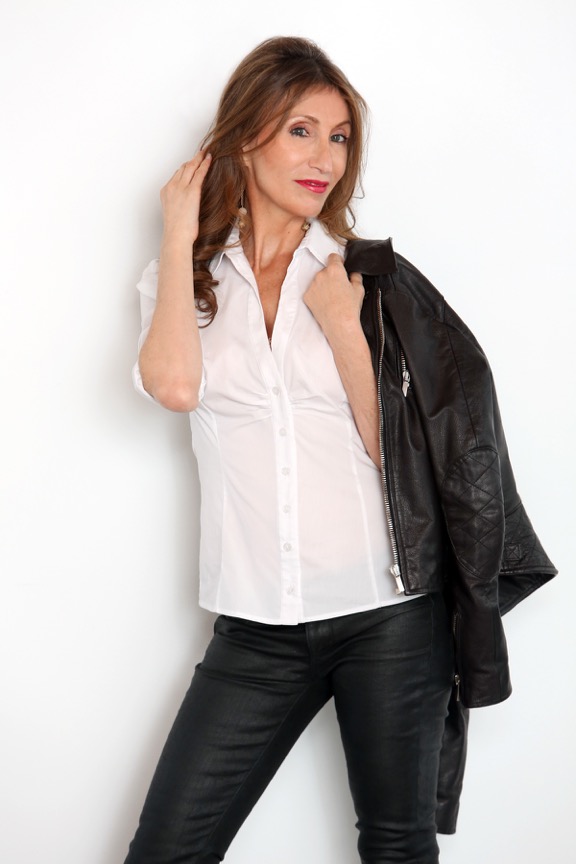
MM: What’s an example of a bigger change that an editor suggested you make to one of your books?
FLB: That’s a good question. I think that there were some changes that I didn’t want to make that I stuck with, but I can’t think of a profound… I’ll have to come back to that for you. I can’t really think of one at the moment. Oh, I’ll give you an example. For Psyche in A Dress I was writing it as prose but my editor took a lot of chances at the time. She wasn’t like a conventional editor. She didn’t follow a conventional path. And she suggested I write it as poetry. She knew that was my background. So, I did that. I’m not sure I would do that again today. I think I would probably write it as prose, but I think it was an interesting note and kind of original.
MM: Speaking of poetry – I know you’ve published poetry – how often do you read it for enjoyment?
FLB: I don’t read it enough but I like to have it available to just glance at as I’m working on different projects because I find it so inspiring. But I think it’s one of the most influential things on my work. I think it can be inspiring to get you into the deeper emotions, the stronger imagery, the rhythm and sound of the words. So, I recommend it very highly.
MM: Do you have any upcoming poetry books coming out?
FLB: Yes, I do. It’s called The Dead Girl and it’s from A Midsummer Night’s Dream Press, which did Fairy Tales in Electric City. They’re a small press and they do tiny, beautiful, little editions. I have a cover and I just have to edit – I’m working on editing – I don’t know a date on that yet. They’re poems based on fairy tales.
MM: During the past couple years I believe the only book you’ve put out is one as F.L. Block [My Miserable Life]. Did you take a couple years off from writing or have things just gotten delayed in terms of publishing dates?
FLB: Well, I published the anthology Rough Magick and also the Weetzie Bat cookbook and I have a short story in a collection called Summer Days. I forget now what it’s called so you’ll have to look it up. [Editor’s note: It’s called Summer Days and Summer Nights: Twelve Love Stories.] A longer short story about these punk kids in the valley in the ’80’s that I actually enjoyed writing a lot and the middle grade book under the different name [My Miserable Life]. But I wrote that a long time ago when my son was a lot younger. Now he’s almost too old for it. So, I am working on right now since January a memoir that’s kind of also a writing guide from my years of teaching and my 30 years of publishing. And it’s also about my whole life and also about different periods of it as ways to demonstrate the idea that a lot of shit happened to me when I was writing. And that’s the theme of the book. A lot of really weird things happened – a lot of painful things – but I kept writing. I kept writing. And I’m saying to the reader, you can, too. That’s how you get through it.
MM: That sounds great because I’ve been hoping you would do a general autobiography and I’ve been hoping you would do a writing book.
FLB: Oh, good. I’m so glad.
MM: Does it have a title yet?
FLB: The current title is The Thorn Necklace from the Frida Kahlo painting, the self-portrait The Thorn Necklace.
MM: I’m always seeing Nymph in with your young adult books because people think you’re strictly a young adult author. So, I was wondering if anyone ever complained that they bought the book for their kid without knowing it was erotica?
FLB: I haven’t heard that, but it drives me crazy that that would ever happen. You mean in bookstores you’ve seen it?
MM: Yeah. Mostly at small, independent bookstores but I did one time see it at a Barnes & Noble.
FLB: [Laughs] Oh my God. That’s insane. But, no, I’ve never heard that, possibly because the people who are going to my section are not teenagers anyway. The people that read my books are mostly 20 to 40. And so they may have to go to the YA section to find my books. But that should not be happening. And then I have a lot of adult books. At least a third of them are adult publishers, but people aren’t aware of it. And it drives me crazy. Especially something like that. That’s so extreme. But even someone will say I didn’t know you wrote a book for grown ups and I’ll say not just one. There are six or whatever it is.
MM: Do you think you’ll ever write another erotic book like Nymph?
FLB: I might. Sure. Yeah. I enjoyed the whole experience of writing and publishing that. And it got really nice reviews. People still ask me about it. So, yeah, I think that would be a positive thing.
MM: You’ve done a werewolf book, a vampire book, all sorts of fairy tales reinvented. Do you ever worry that you’ll run out of ideas?
FLB: I never really feel that way because life is so full of them every day. I worry more that I won’t be able to – I don’t have the time to sit down and capture all of it. I have so many things happen in a day. I’ll think that would make a great short story and I just don’t really have the opportunity now because I’m doing so much teaching and whatever. I have two teenagers. So, it’s a little hard to find that [time]. But I think that what I’m more interested in now than looking to the myths and the fairy tales is looking to the realism. I heard somebody say – one of my colleagues where I teach – it’s hard enough to write about real life, let alone make up other worlds. So, it’s about really tuning into the nuances of daily life. That’s so very rich.
MM: Can you give me an example of a daily life type of thing you’re exploring now?
FLB: A version of the memoir – an earlier version that I was working on – I cleaned my house and I did sort of the Marie Kondo thing where you go through and get rid of all this extra stuff. And I got rid of two giant bins – those utility size trash bins – plus trash cans – so much stuff. And while I was doing that it was bringing up all these feelings about my life and flashbacks to the past and my relationship to my parents. So, it seemed like a simple task. It was someone cleaning out their house, but the flashbacks created this whole strong arc of how this person went through these experiences, accumulated all these memories, some beautiful and some very painful, and released them. That would be an example where you’re not looking to fairy tales, you’re not looking to myths, you’re not looking to sort of heightened drama. There’s drama in those small moments. A picture of my Mom will bring up all kinds of issues for me.
MM: What is your writing routine like? Do you write every day?
FLB: I mean, before I had kids, I always wrote every day. When I was working on a project I’d write every day. A lot of times now I don’t write every day because I’m doing so many other things I’m doing to make a living. Teaching and promotions and taking care of my children and keeping my house together. So, I recommend writing every day, especially to people who are beginning their careers. I should be writing every day. I’m not. I think if you’re thinking about books and writing and reading and talking about it every day, which I do every day, then that’s important. If I’m not reading a novel I’m reading student work or discussing it with my friends or with my students. And I’m teaching now – I have an online class. Two classes privately and my internet students and then my upcoming UCLA extension class. Almost every day of the week I’m reading and talking about it.
MM: So, when do you usually write?
FLB: When I’m absorbed with it I actually don’t know when I write. I don’t have a routine, but I manage to write and get it in whether it’s in the early morning or in the afternoon while my kids are at school. Whether it’s at night after everybody’s settled in. Or the weekend afternoon. When I’m not teaching. It’s just whenever I can. It doesn’t have to be a routine for me. It’s just whenever I can possibly fit it in.
MM: When you finish a book, do you take breaks in between books?
FLB: Sometimes. For a while I was publishing two books a year but now I’m not able to do that in the same way. For instance, I finished the memoir proposal and sent it to my agent and I have an idea for a novel that I really want to write. But I’m holding off until I get a go ahead and finish the memoir. But I usually like to know what the next thing will be.
MM: When you’re writing a book, do you listen to music?
FLB: Music is so influential to me but I am so affected by it that sometimes I can’t listen to it. I’m not able to function. [Both laugh] And so I don’t listen while I’m writing. I know some people do. After David Bowie died it was such a huge inspiration to me. His legacy, but also the way orchestrated his final piece. It was just so beautiful. So, I would listen to him nonstop. And then I stopped and started working on the book. So, I still dealt with all that first.
MM: Not while you’re actually doing the writing of the book, but when you are in the process of writing one, do you listen to music that’s similar in theme or mood to what you’re writing?
FLB: I have in the past a lot. I would say a lot of my books have soundtracks that I think of. So, I go through phases with more music in my life. But, yeah, I do think it helps establish a mood for me very much. With time and place, if it’s not a current time and place.
MM: Who are your favorite bands or solo artists?
FLB: Oh, such a big question. I mean, some of my all-time favorite ones I’ve followed my whole life would be Bowie for sure, Iggy Pop, Patti Smith, PJ Harvey, Bjork, Queen, Sinead O’Connor. I like Arcade Fire a lot. There’s so many people now. I kind of go through phases where I’ll pay attention and other times I can’t – it’s too time consuming. So, I’ll fall back on those a while. Who do you like?
MM: I listen to a lot of new music where I’m doing this site, Love is Pop, which has been mostly music so far.
FLB: Who do you like currently?
MM: There’s a guy named Andrew Shapiro. He’s a famous contemporary classical guy but he put out a pop album that’s really good. And one of the songs on it, “Lauren Hynde,” is about a character from Bret Easton Ellis’s books. He’s one of my favorite authors.
FLB: Oh, yeah. That sounds great. I’ll look that up.
MM: And there’s a British band called The 1975 that I like a lot.
FLB: Oh, cool.
MM: And I’m still a big fan of Garbage. They just put out a new album.
FLB: They did? That’s how much I know.
MM: It’s one of their most interesting albums because they used to be focused on writing pop-oriented songs, and there’s still a few of those tracks, but there’s songs like the closing track – it’s called “Amends” – and it’s this big like, almost seven minute thing. It’s a very, very good album. So, those are some of them.
FLB: Have you read Imperial Bedrooms by Bret Easton Ellis? I was just thinking of that book today.
MM: Yeah.
FLB: What do you think of that one?
MM: I like it. I like it. My favorite’s Glamorama.
FLB: Oh, yeah, I never read Glamorama.
MM: The thing about it is that it’s written in such a way that you can’t tell if the people are terrorists blowing up things around the world or if they’re making a movie in which they’re blowing up things.
FLB: That’s interesting.
MM: You read the book and it’ll seem like one thing for a while then the other.
FLB: That’s great.
MM: Do you ever get writer’s block?
FLB: Well, I joke that with my last name I can’t afford to use that term. I don’t call it that. I definitely had a kind of dry spell in the last – not this year, the year before – this year after Bowie died it was like this floodgate opened and I started writing what turned into the memoir. But that was one of the worst ones that I’ve had. I just don’t like indulging in the idea of it too much. But I think when you do feel that way it’s good to try to fill up again in whatever way you can. And to take care of business. For me, I had some things to attend to and I knew that it would come back at a certain point. So, feeling that trust in that. In the process.
MM: Do you think about a theme or a moral of a story before you start writing a book or does that just come out naturally?
FLB: Most of my books when I was younger I would write them and then read the rough draft and say this is what my psyche was trying to tell me. Sometimes I would need someone to help me point it out, especially early on. When I was kind of figuring myself out a lot. Now, I’ve developed these twelve questions to structure a novel, which you can find online if you Google twelve questions and my name on my blog. And I use those to outline the book. It’s a very general, character based outline. I find it incredibly helpful for myself and also my students. When I’m giving notes to my students. It’s a very immediate way to address any issues that might be there. And one of those questions has to do with theme. And the way the questions intersect kind of develop the last question, which is the theme. I think it’s fine to write a book and not know what the message is and discover it in the process then go back and revise it with that in mind. As you have a lot more experience writing, I think you can kind of know in advance and figure that out. The discovery can be really wonderful.
MM: Because I’m bipolar, I get a very strong natural high when I’m immersed in a project and it’s going well. Do you experience anything like that?
FLB: Yes, for sure. I have. It’s definitely an endorphin rush of creativity when I’m in that flow and conversely if I’m not I feel sad, depressed, disassociating a little. So, yeah, I think it definitely gives me that experience.
MM: One thing I love about your books is how they portray the dreamy side of L.A. that readers rarely get a glimpse of. So, as someone who knows that L.A. isn’t all bad, I was wondering which books and movies that portray L.A. that you have the strongest feelings about?
FLB: Wow. I’m still looking for the movie that does it in the way that I really see it, which is going to be the Weetzie Bat movie if it ever gets made. [Laughs] I think Janet Fitch’s books and I think Bret Easton Ellis’s books. I think Raymond Chandler’s. Nathanael West’s. What else? Steve Erickson. Yeah, those are some of the ways I saw Los Angeles.
MM: Can you tell me which particular books by them you felt were the best?
FLB: I think Paint it Black and White Oleander for Janet. Steve Erickson, I can’t think of a specific title. I think Less Than Zero [by Bret Easton Ellis], obviously. Really, any Raymond Chandler. It’s more the writers than the specific book. What about you? Do you have a favorite?
MM: I really like the movie Crash.
FLB: Yeah, that one did a really nice job.
MM: And I really like Less Than Zero, even though it shows the darker side quite a bit.
FLB: I think who does it really well is Sophia Coppola. Her L.A. is one that I recognize.
MM: Do you live in Los Angeles itself or one of the suburbs?
FLB: I live in Culver City. So, it’s more of a small community here.
MM: What are your favorite cities or towns in the Los Angeles area?
FLB: Well, I love where I live just because it’s very nice to walk my kid’s home after school. And I love the trees and it’s quiet and there’s a nice downtown and the Culver Hotel’s where the munchkins stayed when they shot The Wizard of Oz. It’s kind of magical. I really like it here. I love Hollywood and Venice, Santa Monica, the Fairfax district, and Melrose. I used to live in Melrose. My memoir has a lot about my time there and in Hollywood. Beachwood Canyon. Topanga Canyon. Pasadena’s interesting.
MM: Yeah, I love Pasadena.
FLB: Yeah, I like Pasadena a lot. It’s beautiful. And downtown L.A. has become super interesting. So, there’s a lot of places that I like.
MM: I’m really hoping when I move back there to live in Pasadena or Los Feliz.
FLB: Oh, yeah, Los Feliz is great. A lot of my friends live in those areas.

MM: What are some of your favorite L.A. area restaurants?
FLB: I’m kind of boring. I don’t really go out a lot to eat. I’m vegan so I go to Cafe Gratitude or Sage. Akasha, which is in Culver City. But, honestly, I’m not the best person to ask. But there’s certainly a lot of places to explore in that way. There’s a sushi restaurant that I’ve never been to – it’s not sushi, per say, it’s Japanese – and I saw it in a documentary. It’s this crazy, magical thing. It’s about a young woman. It’s right on the street where I used to live. It looks like just a plain little building. So, there are those little magical places that if you have the time and money to explore it’s fantastic.
MM: You write about adolescents and young adults a lot. Do you ever feel like or fear that you’re living in a state of suspended adolescence yourself?
FLB: [Laughs] No. Maybe in some parts of my life when I was officially an adult I did fear that, but now that I’ve had children – which is why it’s hard for me to write YA anymore – I’m so far from that. I’m raising two teenagers. So, you can’t be in that state. I really have to be the grown up. I would say that’s partly why my work has changed. I’m doing more and more adult stuff. In the past I was doing adult stuff but I would still do YA but now I don’t even know if I can do it anymore. It’s very difficult.
MM: I would almost think it would be the opposite, that you’d get inspiration from having kids that age.
FLB: That’s interesting, but I think that because my priority is raising them now it’s like that will take precedence over seeing them as ideas, you know? I write about them here and there a little. But I really try to not be in that state with them. To separate myself so I can be the parent in the situation. I’m glad to have that conversation because it makes something clear for me in a slightly different way, actually.
MM: Have your children read your books or most of your books?
FLB: No, they have not. They’re not really interested, which is fine with me. When my daughter was little she picked up Weetzie and started it and said mommy, I think this is too mature for me. She came to the scene, which is the subtly written rape scene, basically, and she couldn’t deal with it. And I was like, that’s fine, honey, you don’t need to read that. Then she picked up Witch Baby and she really loved it. It was age appropriate for her. But then after that she kind of asked about them and looked at them for a while but now she doesn’t even ask about them. I think they’re right to sort of stay clear of those. That part of me. I’m their mom. I’m not the writer for them. But I know they’re proud of me, that I supported myself this way for so long. And I think it has influenced them in some ways, maybe not directly.
MM: One thing that I’ve noticed is that you’ve had books out by different publishers over the years. Often two books with two different publishers at the same time. How does that work? Do you not have to sign an exclusive contract with a publisher?
FLB: You do, but if the book is in a different genre it’s not exclusive. In other words, you could have a non-fiction and a fiction, or a YA and an adult, or a children’s and a YA, out with different people. You just can’t have two adult. Unless one publication has been delayed then sometimes that can happen. But you don’t want it to happen.
MM: There’s a lot of magical realism in your books, so I was wondering if you believe in magick in the wiccan sense of the word?
FLB: I like to think of it as more of a metaphor for love and art. And those are both transformational things. So, I believe in that way they are magick. That’s my definition of what magick really is. But I’ve had some strange, mystical experiences that I can’t explain that would point to there being something more than I understand in that realm, even beyond what I understand about love and art. I wouldn’t say no to it but I – in a practical sense I believe in that version of it.
MM: Are you currently editing any books that people can submit a story for?
FLB: I am not. I’m taking a little break from that because I am working on the memoir right now. I think that sometime I’d like to do another anthology. It’s just a matter of fitting everything in. But I found that experience really positive. It was fun. And I wouldn’t mind doing a third. I did Love Magick, the one that you’re in, and I did Rough Magick and I had the name Rough Magic for years before I actually did it. So, I think possibly a third one. I just don’t know the title yet.
Extra special thanks to Francesca for taking the time to speak with me!

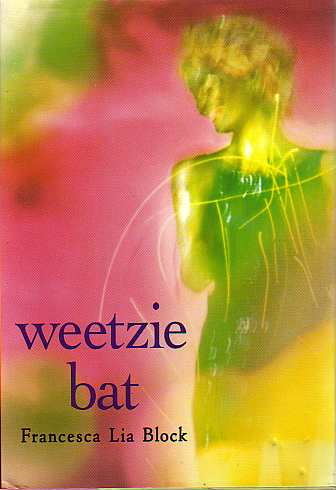
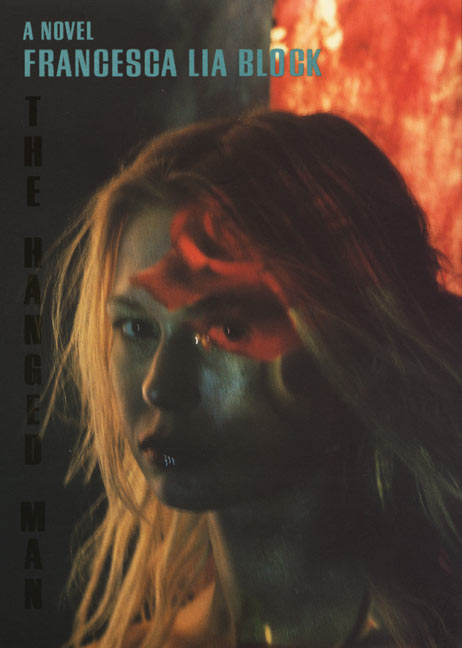
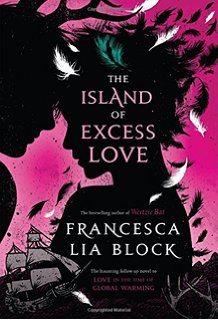
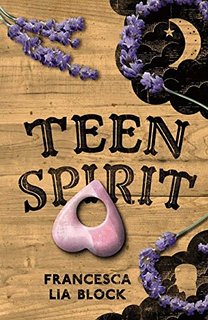
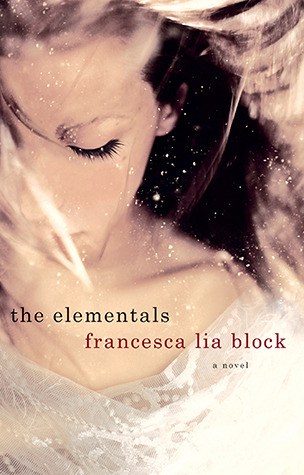
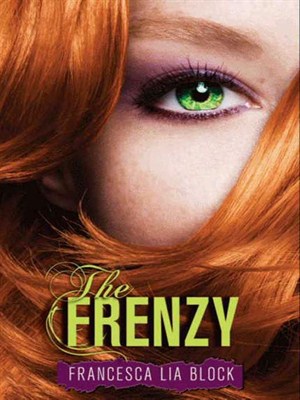
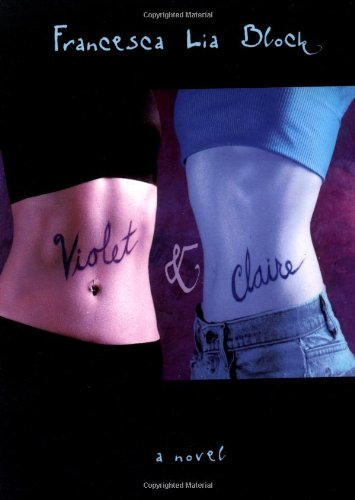

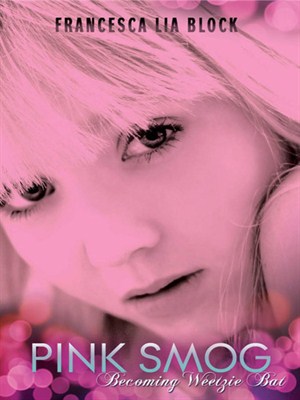

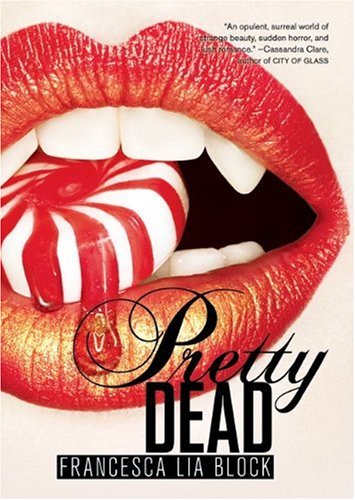
Leave a Reply